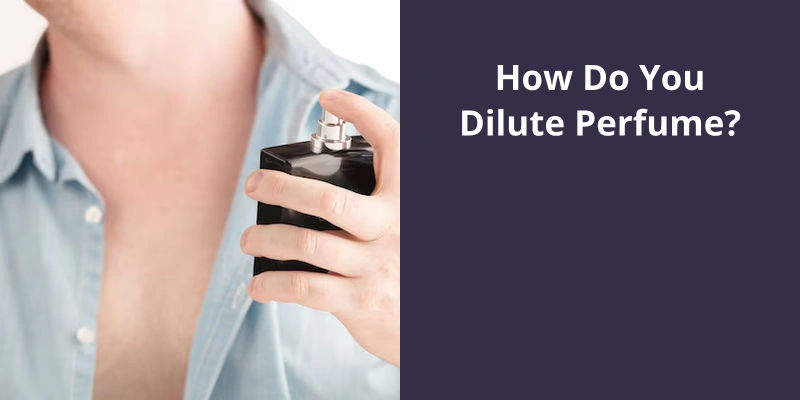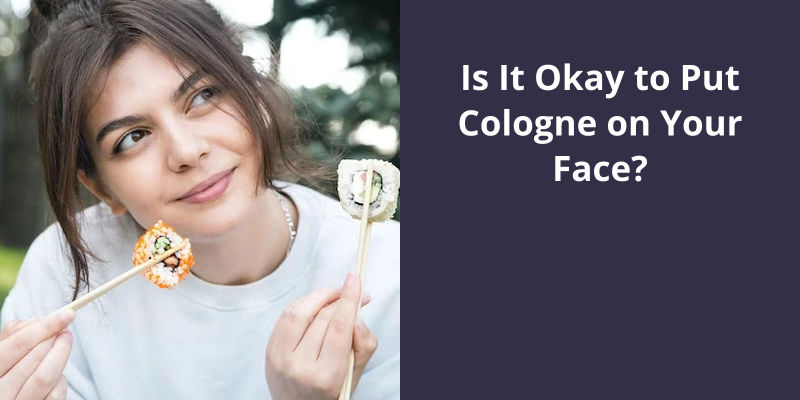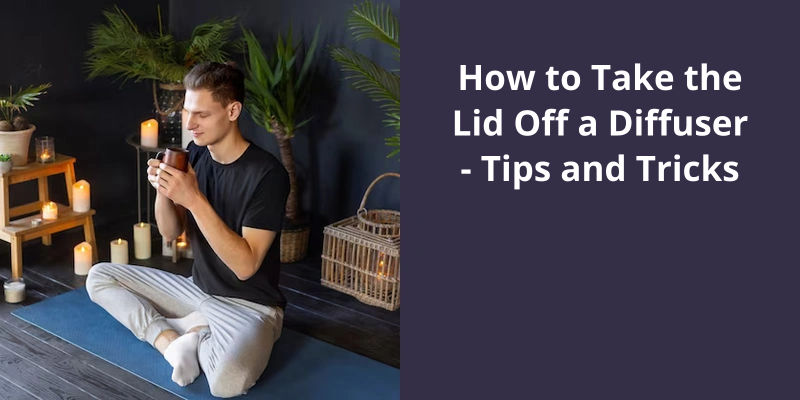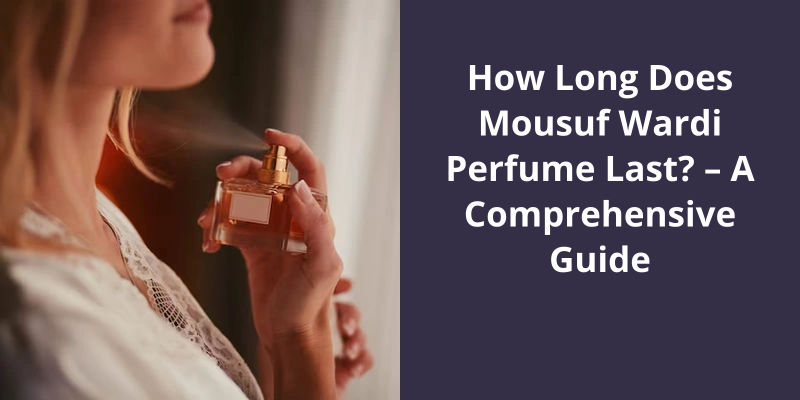Diluting perfume can be a simple process if followed through carefully. Firstly, you need to acquire a carrier oil or unscented lotion to be used as your diluting solution. Look for oils like Jojoba or Coconut oil that easily blend with most perfumes. Start by adding a small amount of perfume into a container, then gradually add your carrier oil or lotion. Mix them together until you achieve your desired scent strength. It’s crucial to add the oil or lotion slowly to avoid making the perfume too faint. Once you’re satisfied with the diluted perfume, you can transfer it to a perfume dispenser for easier application. Always remember that the process can be reversed by adding more perfume if the scent is not strong enough.

How Do You Dilute Pure Perfume Oil?
If you’ve a bottle of pure perfume oil that’s too strong for your liking, you may be wondering how to dilute it. One simple method is to mix your fragrance oil with a carrier oil or a non-scented lotion. This will help to reduce the concentration of the perfume oil and make it more wearable.
Common carrier oils include almond oil, jojoba oil, and coconut oil. These oils are often used in skincare products and have a neutral scent, making them ideal for dilution purposes.
The exact amount may vary depending on the strength of your perfume oil and your personal preference. It’s best to start with a small amount and gradually increase if necessary.
Once you’ve mixed the perfume oil and carrier oil or lotion, blend them together between your hands. This will ensure that the two liquids are well combined and evenly distributed.
Finally, apply the diluted perfume oil to your skin. You can rub it onto your pulse points, such as your wrists, neck, and behind your ears. As you apply the diluted perfume oil, enjoy the scent of your favorite aroma without it overwhelming your senses.
This method allows you to customize the intensity of your perfume to suit your preferences, making it a great option for those who find pure perfume oils to be too strong.
Step-by-Step Instructions for Creating Your Own Perfume Oil Blends Using a Variety of Essential Oils and Carrier Oils.
- Choose a carrier oil for your perfume blend, such as sweet almond oil or jojoba oil.
- Select a variety of essential oils that you’d like to use in your blend. Some popular choices include lavender, rose, and bergamot.
- Start by adding a few drops of your chosen essential oils to a small glass bottle.
- Next, add your carrier oil to the bottle, filling it up about three-quarters of the way.
- Close the bottle tightly and shake it gently to mix the oils together.
- Let the mixture sit for a few days to allow the scents to blend and develop.
- After the waiting period, give the bottle another shake and test out the scent. If you want a stronger smell, you can add more essential oils.
- Once you’re satisfied with the scent, you can transfer your perfume oil blend into a smaller, more portable container if desired.
- Apply a small amount of your perfume oil blend to your pulse points, such as your wrists and neck, to enjoy the fragrance throughout the day.
One effective way to eliminate perfume odor from your skin is by utilizing baking soda. Mixing equal parts of baking soda and warm water to create a paste can do the trick. Gently apply the mixture onto your skin, allow it to sit for a few minutes, and then rinse off thoroughly. Baking soda works to absorb the lingering oils and surplus fragrance, leaving you refreshed and odor-free.
How Do You Get Rid of Perfume Smell on Yourself?
If you find yourself overwhelmed by the strong scent of perfume on your skin, there are several effective methods to help you get rid of it. One of the simplest and most widely-used methods is to use baking soda. Baking soda is known for it’s ability to absorb odors, making it a great solution for removing perfume smells.
Vinegar has natural deodorizing properties and can help neutralize the scent of the perfume. You can either dilute the vinegar with water and use it as a rinse for your skin or soak a cotton pad or cloth in vinegar and gently rub it on your skin.
If you prefer a more fragrant solution, you can use lemon juice to get rid of perfume smell. Simply squeeze some fresh lemon juice onto a cotton pad or cloth and gently rub it on your skin. Allow the lemon juice to sit for a few minutes before rinsing off with warm water.
Activated charcoal is known for it’s ability to absorb odors and toxins, making it an effective odor neutralizer. You can find activated charcoal in the form of powder, capsules, or even as an ingredient in soaps. Simply apply the charcoal directly onto the affected areas of your skin and allow it to sit for a few minutes before rinsing off.
In addition to these methods, it’s important to remember that prevention is key when it comes to removing perfume smells. If you know you’ll be wearing a strong perfume, consider using a light hand when applying it or opting for a fragrance-free alternative. Additionally, choosing scents that have a lower concentration of fragrance oils can help minimize the lingering scent on your skin. Finally, remember to avoid spraying perfumes directly onto your skin and instead opt for spraying them onto your clothes or hair to prevent the scent from becoming too overpowering.
Tips for Preventing Perfume Smells From Lingering on Your Skin, Such as Using Unscented Lotion as a Base Before Applying Perfume.
- Opt for unscented lotion as a base before applying perfume.
- Apply petroleum jelly on pulse points to create a barrier.
- Dab a cotton ball with rubbing alcohol and gently swipe over perfumed areas.
- Try applying a thin layer of baking soda on your skin before spritzing perfume.
- Consider using fragrance-free laundry products to prevent lingering smells on clothes.
- Apply perfume on your clothing instead of directly on the skin.
- Wear lighter fragrances or opt for fragrances with lower oil concentrations.
- Moisturize your skin regularly to prevent the perfume from being absorbed deeply.
- Avoid rubbing your wrists together after applying perfume.
- Store perfumes in a cool, dark place to maintain their quality.
If you find yourself faced with the overwhelming scent of perfume that’s just too strong, there are a few quick and easy tricks you can try. One option is to make use of rubbing alcohol by applying it to a cotton ball and wiping the area where the perfume was applied. Another solution is to use baking soda, which can help absorb the excess fragrance. Additionally, a hair dryer can come in handy to blow away some of the scent. When you’re on the go and need a quick fix, there are also various portable options available.
What to Do With Perfume That Is Too Strong?
If you find yourself in a situation where you applied too much perfume and it’s overpowering, there are a few things you can do to help dilute it. One of the easiest and most cost-effective solutions is to make use of rubbing alcohol. This household item can be found in most medicine cabinets and is very effective in diluting perfume. Simply soak a cotton ball with a small amount of rubbing alcohol and apply or wipe the area where the perfume was applied. The alcohol will help to break down the strong fragrance and make it less overpowering.
Another option is to use baking soda. This common household ingredient is known for it’s ability to absorb odors. Let it sit for a few minutes, then rinse off with water. The baking soda will help to neutralize the scent and make it less noticeable.
If you’re in a hurry and need a quick fix, a hair dryer can come in handy. Turn on the hair dryer to a low setting and aim it towards the area where the perfume was applied. The heat from the hair dryer will help to evaporate the fragrance faster, making it less potent. Be careful not to hold the dryer too close to the skin to avoid burning yourself.
One option is to use a hand sanitizer that contains alcohol. Another option is to dab a little bit of unscented lotion onto the area to help mask the strong scent of the perfume.
Using Essential Oils to Counteract the Scent of the Perfume
- Apply a drop or two of your favorite essential oil to your wrists and gently rub them together.
- Mix a few drops of essential oil with unscented lotion or body oil, then apply it to your body.
- Add a few drops of essential oil to a cotton ball and place it in your purse or pocket.
- Create a natural air freshener by combining essential oils with distilled water in a spray bottle.
- Dilute essential oils with a carrier oil, such as almond or jojoba oil, and apply it to your pulse points.
- Blend essential oils with unscented shampoo or conditioner to mask the scent of your perfume.
- Use an essential oil diffuser to spread the aroma throughout your home or office.
- Apply a small amount of essential oil to the inside of your mask to counteract any unwanted smells.
However, if you prefer an alternative to coconut oil, other options include jojoba oil or grapeseed oil, which are light and easily absorbed by the skin. Both of these oils have a neutral scent that won’t interfere with the fragrance of your perfume.
What Is the Best Oil to Dilute Perfume Oil?
When it comes to diluting perfume oil, it’s important to consider the type of oil base that’s being used. Most commercial perfumes are diluted with alcohol, which makes it unsuitable for dilution with fixed oils. However, if you know for a fact that the perfume is oil-based, then Fractionated Coconut Oil is an excellent choice as a diluent.
Firstly, it’s colorless, meaning it won’t alter the original color of the perfume oil. This is crucial for maintaining the desired aesthetic appeal of the perfume. Additionally, it’s odorless, ensuring that it doesn’t interfere with or alter the scent of the perfume oil.
Another advantage of Fractionated Coconut Oil is it’s almost infinite shelf life. Unlike some other oils, it doesn’t go rancid or spoil with time. This ensures that the diluted perfume will remain stable and retain it’s quality for an extended period.
In terms of consistency, Fractionated Coconut Oil is a lightweight and non-greasy oil.
It’s colorless, odorless, and long shelf life properties make it an ideal option.
Other Options for Diluting Perfume Oil, Such as Jojoba Oil or Sweet Almond Oil.
In addition to using water, there are other options for diluting perfume oil. One option is to use carrier oils like jojoba oil or sweet almond oil. These oils are commonly used in perfumery and can help to dilute the concentrated perfume oil. They’ve a neutral scent and can also add moisturizing benefits to the perfume. To dilute perfume using carrier oils, simply mix a few drops of the perfume oil with a larger amount of the carrier oil. This will help to reduce the potency of the perfume and make it more wearable. It’s important to note that when diluting perfume with oils, it’s best to use high-quality carrier oils that are safe for skin application.
Source: What type of oil can be used to dilute concentrated perfume oil …
In addition to alcohol, there are several other raw materials that are commonly used for diluting perfumes. These include distilled water, carrier oils such as jojoba or fractionated coconut oil, and solvents like dipropylene glycol or diethyl phthalate. These materials not only help to dilute the concentration of the fragrance oils but also contribute to the overall texture and longevity of the perfume.
What Raw Materials Are Used for Diluting Perfume?
When it comes to diluting perfume, the use of alcohol is crucial. Alcohol serves several purposes in the process. Firstly, it acts as a preservative, ensuring that your perfume remains stable and doesn’t spoil or degrade over time. Without alcohol, your perfume may become susceptible to bacterial growth or oxidation.
Moreover, alcohol is instrumental in achieving a desired fragrance strength. This allows you to tailor the fragrance to your preference, ensuring it isn’t overpowering or too subtle.
Additionally, if you aim to create a perfume that can be sprayed, alcohol is essential as a base. When you press the spray nozzle, alcohol helps to propel the fragrance into a fine mist, facilitating an even distribution on your skin or clothing. This spray mechanism adds convenience and enhances the overall user experience.
As the alcohol evaporates off your skin or clothes, it carries the perfume molecules with it, dispersing the scent into the air. This process creates a captivating aura around you, as the fragrance gradually radiates outward, enveloping you in a cloud of scent.
Ethanol or ethyl alcohol, which is derived from crops such as sugarcane or corn, is commonly used due to it’s relatively low odor and purity. Isopropyl alcohol, on the other hand, has a more distinct smell and is primarily used in medical and industrial settings rather than perfumery.
It’s preservative properties, ability to control scent strength, and role in enabling spray application make it indispensable. The evaporation of alcohol aids in releasing the fragrance molecules into the air, creating a captivating and long-lasting presence.
Different Types of Alcohol Used in Perfumery and Their Characteristics
- Ethanol: Commonly known as grain alcohol or ethyl alcohol. It’s a volatile, colorless alcohol that’s a slightly sweet aroma.
- Isopropyl Alcohol: Also known as rubbing alcohol. It’s a strong, sharp odor and is often used as a solvent or disinfectant in perfumery.
- Benzyl Alcohol: This alcohol has a pleasant floral scent and is often used as a solvent in perfumes and fragrances.
- Methanol: It’s a toxic alcohol and isn’t commonly used in perfumery due to it’s potential health hazards.
- Propylene Glycol: This alcohol has a mild, slightly sweet odor and is frequently used as a solvent or carrier in perfumes.
- Glycerin: A natural alcohol derived from vegetable oils. It’s a slightly sweet fragrance and is often used as a moisturizing agent in perfumes.
- Phenethyl Alcohol: This alcohol has a floral, rosy scent and is commonly used as a fragrance ingredient in perfumes.
Conclusion
By using rubbing alcohol, you can easily and effectively dilute a strong perfume scent. This method is simple and accessible, requiring nothing more than a cotton ball and a bit of rubbing alcohol. By applying the alcohol to the areas where you’ve applied too much perfume, you can gradually lessen the overpowering fragrance, allowing for a more subtle and enjoyable experience. So, the next time you find yourself with an overwhelming scent, reach for the rubbing alcohol and take control of your fragrance.





